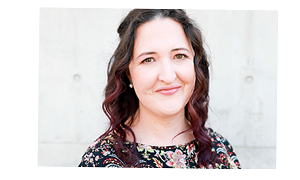Covid has changed us in so many ways.
I watched Dumb Money last night on Netflix. It’s based on the true story of how a group of regular people, led by YouTuber and financial adviser Keith Gill invested so much money into the US video game retailer GameStop (Australian subsidiary is EB Games) that certain hedge funds and short sellers betting against the company were financially destroyed. The title of the film is a pejorative term to describe the investment choices of everyday individuals by those in the industry who apparently know better.
Most of the action plays out during the height of the pandemic with retail and hospital workers in masks desperately trying to stay afloat. Seth Rogan’s real life character Gabe Plotkin was then one of the US’s highest earning hedge fund managers. We see him looking to knock down a waterfront home to build his family a tennis court, and being told later that perhaps sitting with the ocean view behind him during congress hearings about his involvement in the above was “not a good look.”
I think we’ve all been in a situation where we’ve been treated, consciously or unconsciously, like we’re an idiot for not knowing something that is beyond our sphere of experience by someone who knows (and perhaps also should know) better.
Perhaps if we asked ourselves honestly, we also might find that we’ve done the same.
While 2020 is behind us, it was a period where there were imposed rules and choices placed upon us that were all beyond what we knew. As a result, I think we now all read the T&Cs a little more closely.
This week, ABC’s Media Watch turned its attention to the Capital Radio Network for its delivery of interviews with competition winners. Someone recorded an interview with Deb who had won a trip to LA to see the Rolling Stones. They then got the Network’s breakfast presenters in Canberra, Victoria and Perth, to create dialogue around the answers that Deb gave to the initial caller.
No rules were broken. It was a clearly stated network competition and Deb is a real person who won a very cool prize.
What was the problem here?
Like Arj Barker a few weeks ago throwing a mum out of his 15+ comedy show for bringing her baby, this conversation is a divisive one with many radio people (including myself to a degree) accepting that in these times of limited resources making a winner sound local isn’t a bad idea, if all the other conditions were met.
My husband said that it wasn’t dissimilar to buying a lottery ticket. Someone else wins. You don’t care where they’re from (although you’d be devastated if they bought it the same day and place as you did), you buy another for the next draw, and move on.
Why someone contacted Media Watch is slightly more complicated and indicative of why radio stations, and networks, can’t, like the film I watched last night, make dumb money assumptions about their listeners.
Radio’s foundation is around live and local. Connection and community. People feel like they know you, and many see themselves in the parts of your life that you share. One of my most profound moments was a woman at an event who came up and started talking as if we were old friends. While I tried to work out where I fit into her life, she said:
“Oh my god. Sorry! I just feel like I know you after you spoke about your brother. I just started in the middle, didn’t I?”
Listeners sometimes walk a mile with us that we don’t ever get to know, like above. Breaking that trust, even by faking a ‘live’ interview conversation, can be like learning from your mate in primary school that your Mum is the tooth fairy.
I recently attended Mumbrella 360, moderating the Futurist Tech and AI stream of the first day. The last session of the day, hosted by Mary Proulx from Bread Agency, was called How Communities Can Supercharge Your Brand, with Mary laughing at the outset about how her topic didn’t really ‘fit’ the conversations that had gone beforehand.
She spoke to how certain brands, like Nike and Harley Davidson, are excelling in sales by the communities that are built around them.
One, the Harley Davidson Owners Group, or HOGS as they are affectionately known, have more than a million members worldwide. These members go out of their way to wear and buy aligned merchandise because of how owning, having once owned or aspiring to own a Harley Davidson makes people feel.
Closer to home, Proulx spoke about Keep It Cleaner, or Kic, started by Steph Claire Smith and Laura Henshaw. Henshaw and Smith are entrepreneurs, authors and healthy living advocates. Their KICPOD podcast launched five years ago and is usually in the top 50 most listened to podcasts on the Australian Podcast Ranker. Radioinfo recently featured Laura’s new limited series Do I Want Kids?, a KICPOD podcast offshoot.
The community they’ve created online has 324,000 followers just on Instagram. The positive body image and healthy eating message is an invitation rather than a ‘buy this product’ slap in the face. It’s impressive, authentic and indicative of the rise of the “podfluencer”, with Spotify saying in the release of their recent Podcast Trends Tour:
“Nearly half of Gen Zs and Millennials are more likely to be interested in ads/products when promoted by their favourite podcasters.”
I don’t fit those demographics, but the session was a revelation to me about the online social communities I’ve joined, that have kept me sane/laughing/connected during and post Covid.
Some have no bearing on my life experience (Bad Dates of Melbourne is my absolute favourite) and others do in ways I wouldn’t have initially expected.
Last year, for Radioinfo, I spoke with Chloe Grayling about The Sunshine Project podcast. Chloe was such a genuinely beautiful soul that I joined her Sunshine Project Podcast Community. Last week Chloe announced she was pregnant, after a mighty journey to reach that destination. I shared the community’s elation at the podcast episode where she shared the news. We are all invested in her journey, which just happens to also be shared on socials and via a podcast.
Today also I got a Spotify media release about a third series of The Louis Theroux Podcast. This by itself isn’t noteworthy, as I receive a great many new podcast announcements. What was different about this one is that Series 3 won’t even be released until September.
Normally a media release will read new podcast x is out now/tomorrow and will feature guest y, z and topics a and b. Find it here (and previous seasons) now/soon/weekly. Theroux doesn’t even know who he’s interviewing yet! This is testament to fans who will now keep tabs for the launch date as keenly as for the second half of Bridgerton, with Polin.
Radio’s point of difference, before Covid, AI and the rise of podcasting, was that one-on-one connection with listeners. Announcers and producers are at the whim of their network and content directors or other next level management about what parts of their on-air day then get shared via socials, or their catch-up podcast. Sometimes decisions like how they interact with a competition winner, like perhaps the Capital Radio Network and Deb, can be taken entirely out of their hands.
This sense that a listener won’t notice, or care, is the equivalent of Seth Rogan giving his “I’ve lived a life just like you” speech while seated in his waterfront home with a beach vista behind him. You cannot underestimate the intelligence and the trust in you that is the gift of your committed listeners.
To leave this on a lighter note, this week I also saw two wonderful regional radio promotions that exemplify the best of what our industry has to offer.
Firstly, heading north Mix 104.9 in Darwin has built a relationship with the Humpty Dumpty Foundation, which provides essential medical equipment for most of the public hospitals and health services across the Northern Territory.
Ahead of the Great Humpty Ball, that organisation’s major fundraising event later in June, the Mix 104.9 Team had the idea to get as many signatures as possible of Aussie Artists that had travelled to the top end in that year on a guitar, and then put it up for auction.
When interviewing Troy Cassar-Daley for the upcoming (at the time) Red Hot Summer Tour, Mix asked him if he had a spare guitar he might be willing to donate? When told about the Foundation, Cassar-Daley happily offered a Takamine guitar, and a couple of his tour mates signed it alongside Troy.
That guitar now has 30 signatures from a who’s who of Australian music with breakfast announcer Daniel Hilliard working out it represents 410 ARIA nominations and 110 wins.
It’s up for auction until the day of the Ball, Saturday June 22.
Last Friday June 7, on 94.9 Power FM‘s breakfast show in Nowra, Glenn “Stolzy” Stolzenhein and Abby Hopkins played their daily Scatterbrain competition where listeners get a letter of the alphabet, 10 questions to answer that must start with their letter and 30 seconds to answer them all correctly.
This competition hadn’t had a winner since January 16, so Stolzy and Abby called their content director, live on air, and asked if they could stay put and keep playing Scatterbrain until someone got all the questions right and won $5000.
After 32 games back to back, for seven hours, Trish from North Nowra got through and broke the Scatterbrain drought.
When asked what she’d do with the money, Trish poignantly replied:
“I am going to help my little sister out who is struggling at the moment. She puts her kids first and leaves nothing for herself.”
Abby said that the phones ran hot with every caller saying they were getting a friend and family member to have a go too, introducing the station to more new listeners. Those who didn’t win would wish the next player the best of luck.
These aren’t big sums of money or groundbreaking concepts, but are examples of local radio and community engagement done right.
Underestimating listeners, and their capacity to see through smoke and mirrors ‘dumb money’ competitions and promotions is only going to do damage to radio TSL, audience and reputation. Perhaps the broadcasting industry can learn a thing or two from podcasters without a radio background on followers, community and brand building.
We’ve all changed.


